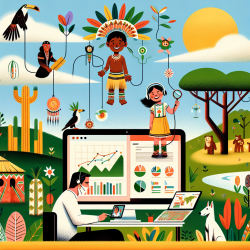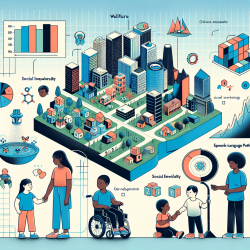Introduction
The COVID-19 pandemic has prompted a global examination of wildlife trade practices, with significant implications for public health, conservation, and legal compliance. The research article titled "Animal sales from Wuhan wet markets immediately prior to the COVID-19 pandemic" offers valuable insights into these areas. This blog post will explore how practitioners, particularly those in education and therapy services, can leverage the findings to enhance their skills and encourage further research.
Understanding the Research
The study documented the sale of 47,381 individuals from 38 species in Wuhan's markets between May 2017 and November 2019. The findings revealed that while no pangolins or bats were sold, other species were kept in poor conditions, posing potential zoonotic risks. In response, China implemented temporary and permanent bans on wildlife trade, aiming to protect human health and promote biodiversity conservation.
Implications for Practitioners
Practitioners in various fields can draw several lessons from this research:
- Legal Compliance: Understanding the legal framework surrounding wildlife trade is crucial. Practitioners should stay informed about regulations and ensure compliance to avoid legal repercussions.
- Public Health Awareness: Educating communities about the risks associated with wildlife trade can help prevent future zoonotic outbreaks. Practitioners can play a key role in disseminating this information.
- Conservation Efforts: Supporting conservation initiatives can mitigate the impact of wildlife trade on biodiversity. Practitioners can collaborate with conservation organizations to promote sustainable practices.
Encouraging Further Research
While the study provides a comprehensive overview of wildlife trade in Wuhan, there is still much to learn. Practitioners are encouraged to engage in further research to deepen their understanding of the following areas:
- Zoonotic Pathogens: Investigating the range of zoonotic pathogens in wildlife markets can inform public health strategies.
- Consumer Behavior: Understanding the motivations behind wildlife consumption can aid in developing targeted educational campaigns.
- Policy Development: Researching effective policy measures can guide future legislative efforts to regulate wildlife trade.
Conclusion
The research on wildlife trade in Wuhan provides critical insights for practitioners seeking to enhance their skills and contribute to public health and conservation efforts. By understanding the implications of wildlife trade and engaging in further research, practitioners can play a pivotal role in preventing future pandemics and promoting sustainable practices.
To read the original research paper, please follow this link: Animal sales from Wuhan wet markets immediately prior to the COVID-19 pandemic.










